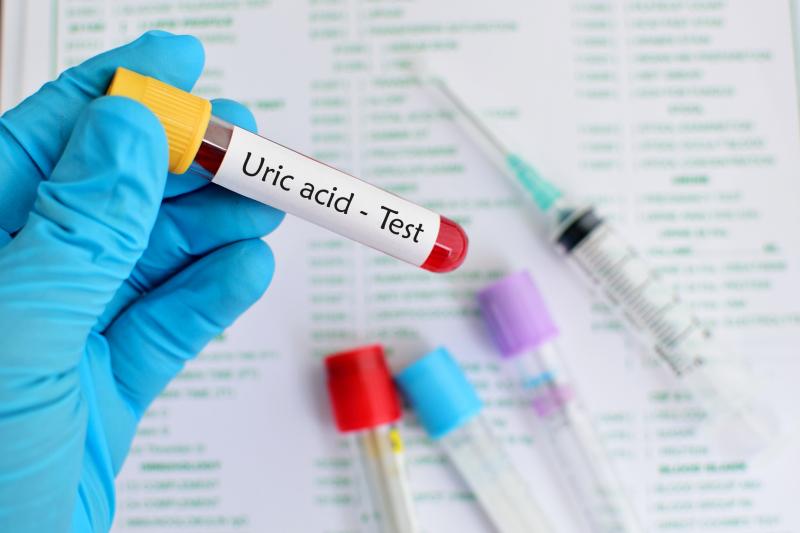
Excessive levels of uric acid in the blood are a risk factor for hypertension, independent of alcohol consumption, a study has found.
The analysis involved 7,848 hypertension-free adults (age, 30–74 years; 54.1 percent male) without hypertension who had undergone a medical check-up. Of these, 786 men and 187 women had hyperuricaemia (defined as uric acid >7.0 mg/dl in men, ≥6.0 mg/dl in women, and/or receiving treatment for hyperuricaemia or gout).
Overall, participants with hyperuricaemia had higher systolic and diastolic blood pressure (BP) and were more likely to have estimated glomerular filtration rate (eGFR) <60 ml/min/1.73 m2, dyslipidaemia, smoking history, be overweight and a heavy alcohol drinker.
A total of 1,679 participants developed hypertension (defined as the first diagnoses of BP ≥140/≥90 mm Hg and/or initiation of antihypertensive drug treatment) over a mean follow-up of 3.99 years. Multivariable logistic regression analyses showed that alcohol consumption was positively associated with the incidence of hypertension in both men (p<0.001) and women (p=0.037).
In Cox proportional hazards models controlling for alcohol consumption, hyperuricaemia emerged as a risk factor for hypertension in men (hazard ratio [HR], 1.37, 95 percent confidence interval [CI], 1.19–1.58) and women (HR, 1.54, 95 percent CI, 1.14–2.06) alike. Compared with nondrinkers, alcohol drinkers of both sexes were at higher risk.
Among nondrinkers, the HRs for hypertension were 1.29 (95 percent CI, 0.94–1.78) and 1.57 (95 percent CI, 1.11–2.22) in men and women, respectively, with vs without hyperuricaemia. The corresponding HR was 1.88 (95 percent CI, 1.27–2.86) in the group of participants with baseline BP <120/80 mm Hg. The interactions between hyperuricaemia and sex (p=0.534) and between drinking and sex (p=0.713) were not significant.
The findings underscore the potential usefulness of uric acid assessment, regardless of drinking habits, in the prevention of hypertension among men and women, researchers said.